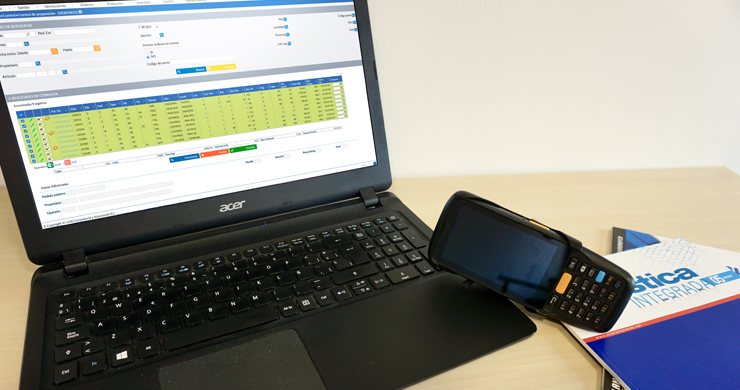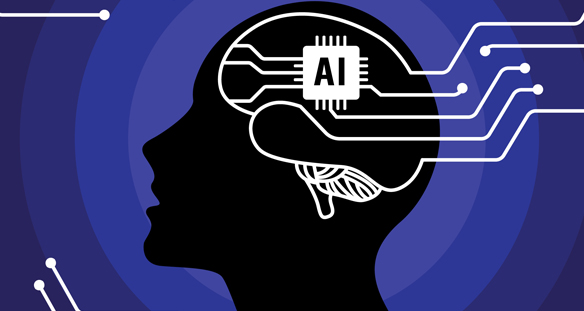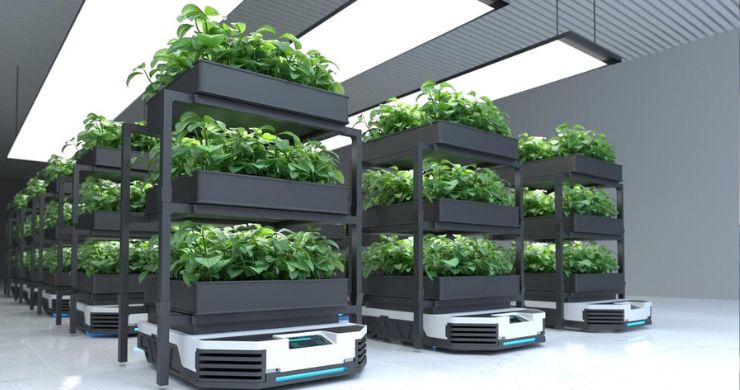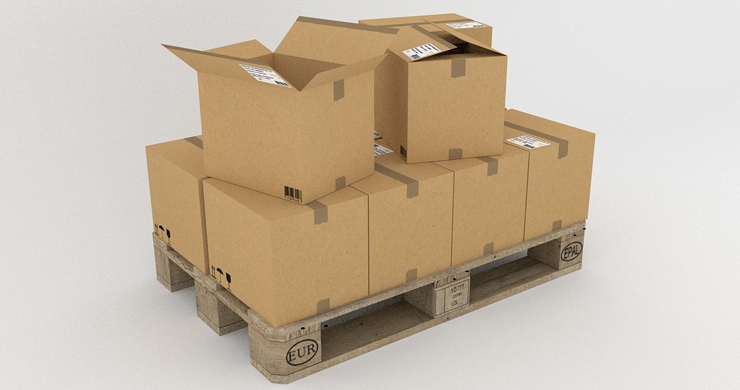*An original article written without resorting to AI, the old-fashioned way (for now).
Article written by:
Felipe Rebollo Gómez
Head of Business Development and Sales for Inlog Consulting and Devol RPA
Tomás Muñoz Alonso
CEO Tomec Engineering
Published by Interempresas on 5/21/2024
Avalanche…
Faced with the avalanche, almost reaching the point of infoxication, of the enormous or not so enormous possibilities, disruptive or somewhat less, certainly challenging, of the technology of the moment, we are going to allow ourselves to open a parenthesis.
We use every day, almost without realizing it, immense transformational levers that our ancestors did not enjoy. Some of them were already of first magnitude, before AI was at the gates of an uncertain future. As we get a glimpse of its enormous potential, it is, if anything, more or less true than ever. It is true that AI makes our businesses more competitive today. Our limited human creativity is cooler.
Also, years ago, for some of our customers, hardware/software robotization or hardware/software automation were almost impossible challenges: they were technologies that did not contribute that much either. They didn’t really solve the problems, the problems or barriers to the daily routine of the inevitable, the result of human limitations.
A plethora of technological assets surrounds us: computers, laptops, cell phones, tablets, barcode scanners, PDAs, terminals, multiple specialized software of various kinds (ERP, CRM, MES, Scadas, Apps), motors, roller conveyors, pistons, chains, elevators, stacker cranes, silos, automatic warehouses, sorters, measuring with artificial vision, defect recognition with various technologies, indicators… they were not really necessary. But the term value is imposed, when what we thought was the cost of things.
Creating value used to be a Japanese thing, almost a thing of Martians and those things from outer space. With time we have all realized that there is no other way than to fight every day to create more value. This prepares us better in all aspects for the new challenges that await us at every corner.
Markets are becoming increasingly complex. We serve clients in an increasingly global world. Social stakeholders go with the times and are increasingly demanding in terms of monitoring and the need for information on activities; the legal framework is becoming more and more demanding. In short, we live in a society that is increasingly responsible for the resources that we have to pass on to future generations, and so on and so forth. “It almost makes you want to throw in the towel…”
In this technological landscape, AI is particularly essential to achieve all the business, personal and work objectives of all social stakeholders, and to do so simultaneously and in the best possible balance. AI will give rise to the only possible technocratic system that is socioeconomically sustainable.
Artificial Intelligence has made its way into almost every aspect of our lives, from household tasks to high-tech industrial processes. We are at the convergence point of this technological metamorphosis where AI not only boosts productivity by optimizing industrial workflows, but also pleasantly surprises us with its incorporation into our daily routines.
Without a future we are nothing
Many of us share the view that we have an exciting future ahead of us, one in which we will ask so much of technology. We humans are always waiting for the miracle.
Since we believed in magic, we trusted blindly in the power and potential of technology. We were sure that a miraculous, life-saving, effective and record-time vaccine would be produced to save humanity from collapse. Before that, we failed to see the potential of the Internet and the bubble burst in our face. In other words, nothing new. That’s the thing about blind trust.
Many others before us have lived through the industrial development of their town, city or country. They have smiled at the arrival of energy in new and increasingly mechanized and automated production centers. Initially, in the form of steam, which freed them from brutal physical labor. They breathed a sigh of relief when it was possible to have energy conducted by an electric cable, moving industry away from the energy production centers, making distributed and decentralized production and generation a reality.
They discovered that scaling things down took them to another dimension, improving the living conditions of many. They were amazed by the computer that landed the Apollo 11 spacecraft on the moon for the first time, almost by magic (again), and whose capacity is today surpassed 1,000 times by the most basic of the smartphones we use every day. All these revolutions had this aspect of transforming, in a more or less disruptive way, sectors, tasks, roles, jobs and a whole new society that came from behind.
Today everyone is afraid of AI, that it will make them insignificant. From lawyers to doctors, from engineers to architects. And since we are afraid of everything, the first thing we do in old Europe, which does not have the ability to set the pace in technology that is located across the pond, is to put gates to the field, without asking ourselves why. Odd or not, there are no significant players on this side.
Will it be true that with AI, companies will create more value? Will AI make more and better decisions, less random, less conditioned by spurious interests? Will AI put an end to corruption? How will AI decide when it has to face ethical decisions and choose between who to give a scarce medicine to between the young and the old person? And between the Caucasian and another race? And between the inhabitant of one country or another? And between the one who has more economic capacity and the one who has less?
Perhaps, in the end, the ideal would be not to have to decide. Another advantage of AI. There are organizations, people, countries and cultures that panic about deciding. Deciding between single or with milk, between 4th and 5th gear in our vehicle’s gearbox? We have no choice but to face the future without fear, with hope, with illusion and with the naturalness that humanity has faced so many thousand times since the world began and we came out of the water to something similar, us or our ancestors.
The only certainty is that our children, grandchildren and future generations will face their challenges, their decisions and their time. They are sure to be far greater and more challenging than those of any previous generation. Science is the impulse, both cause and consequence of the human spirit itself, which tirelessly seeks and finds, to seek and find again. Endlessly and without pause. And after AI there will be other things, as after fire came metals in the Age of Metals. Come on, yesterday.
In the nearer realm of logistics, robotics and automation technology projects, AI has immense possibilities for performing tasks, proposed interactions, new ideas, like never before. To limit it only to optimizations of human capabilities in the form of a particular software or hardware to solve a trivial earthly problem is an insult. Weighing in on achieving more informed decision making, analyzing an impossible number of nodes for humans, already puts us in our place: small, very small.
What will become of our programmers when by means of a voice message we ask the AI for a code to do such and such a thing and seconds later we copy&paste it and it works on the first try? Or when we are able to build such and such a logistic installation? And when we are able to make everything we imagine come true just by thinking?
Surely AI helps companies to realize the solutions they need to give their customers better solutions in terms of innovative products and services, more economical, with more margin, in the near certainty that from this Tsunami we pass it. Phew, saved again!
We all can and must contribute to make it a reality, understanding as we do that the opposite is impossible. Anything else is suicide, not taking it into consideration will be the end for many organizations and individuals.
Innovation, technology and more
Will entrepreneurs or new products and services be the big losers from AI? The key for our organizations to research, innovate, create new companies or collaborate with other professionals or companies is based on the axiom that only by creating new opportunities will we find new businesses. It seems obvious that an AI with several thousand nodes will make much better decisions than any human who, with more or less sense of smell, data, Business Case, Business Plan… launches into the terrifying task of entrepreneurship. Ah, these are not creative tasks typical of humans.
Will AI be able to tackle the most creative tasks of the most creative human ones? How to perceive the trust to collaborate, cooperate from being competitors and integrate Open Innovation based on: “there is always someone who may have better ideas than me”.
It seems undeniable that there must be a relationship between innovation, technology, business and AI itself that bears fruit in a way that is still unknown, but that bears fruit so that this modern society continues to advance and improve.
The conditions are in place to make the solutions that companies need a reality, apparently there are resources and infrastructures, the concern of the institutions is reasonable, as well as that of the people and the business world.
The innovation introduced through AI is not just limited to logistics and the robotization of industrial facilities we see around us, but affects every aspect of our existence. A simple example would be the virtual assistants on our smartphones or the intricate algorithms that adapt our online experiences according to personal preferences: these are all complimentary AIs that facilitate our relationship with technology and make it more meaningful.
The advances made by AI are incredibly exciting as they drive innovation in fields and aspects that would otherwise be unimaginable. From creative decision making, to open innovation projects, AI is proving its ability to be a powerful tool in all aspects of progress in this society that knows no rest.
We are bound and dedicated to unleashing the full power of AI and painting a picture of tomorrow where industrial automation is not separate from daily human life, but intertwined with it, leading us towards advancement and continuous improvement in all areas of our society.
What needs to be done and how can we all contribute to make it happen?
Yes, AI is the super-tool of the moment that we should not view with fear, but with respect. But it should not take our jobs. Not us, I’ll be satisfied if it takes it away from the person next to us.
You may also be interested in…






